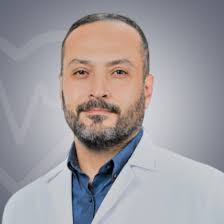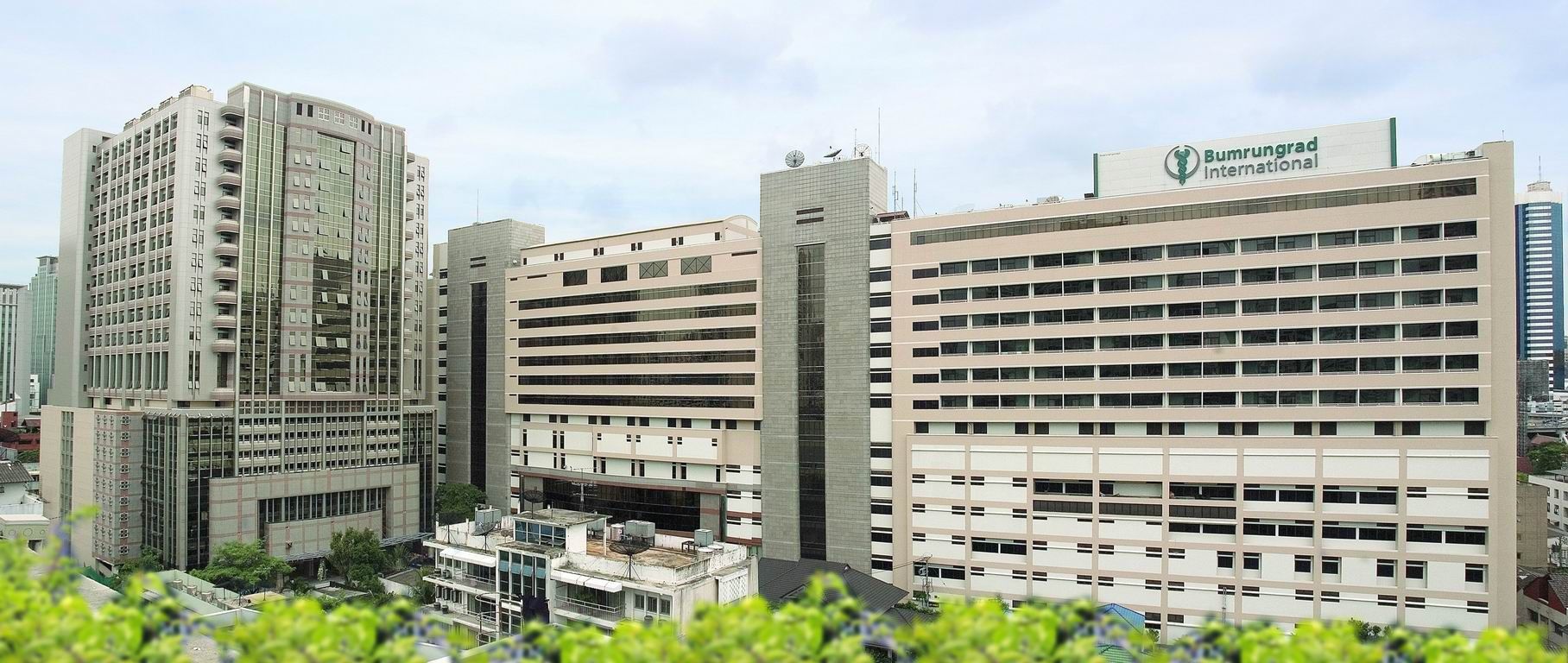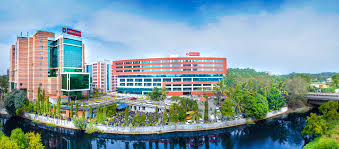Ear Nose Throat (ENT)
Septoplasty Treatment
Septoplasty
The septum is basically the wall of bone and cartilage which particularly divides your nose into two different and separate nostrils. Generally, a deviated septum happens when your septum is located to particular one side of your nose. Septoplasty treatment in India is specifically a method or a surgical procedure to treat a deviated septum. Septoplasty generally moves the septum, ensuring the better airflow by your nose.
Septoplasty
The septum is basically the wall of bone and cartilage which particularly divides your nose into two different and separate nostrils. Generally, a deviated septum happens when your septum is located to particular one side of your nose.
Many people are born specifically with a deviated septum, but it can also be occurred by an injury to your nose specifically. Many people with a deviated septum usually have only a single nasal passage which is very much smaller than the other. This can result in difficulty in breathing. Certain symptoms of a deviated septum may involve regular nosebleeds and mild facial pain. Surgery is basically the method to treat a deviated septum.
What complications can happen after Deviated Septum Treatment?
Septoplasty treatment in India is a regular process in basically an otolaryngology implemented to address the nasal obstruction occurred by a specific deviated nasal septum. It is usually suggested by the inferior turbinate minimisation. Risks that can originate from this procedure particularly involve high level of bleeding, specific cerebrospinal fluid rhinorrheap, extraocular muscle damage, wound infection; septal abscess; toxic shock syndrome; septal perforation, nose deformity, depression in nasal tip; and certain sensory changes, like anosmia or dental anaesthesia. Local and general anaesthetics have been used to successfully carry out septoplasty and the operation may be done either by the process of endoscopically or open. A refined intraoperative visualization operation is the major factor in avoiding risks and complications in attaining a functional kind of nasal airway.
Although the outcomes are mostly often decent, cartilage and tissue may slowly move or refine over time. The nasal tissues specifically are modest after the duration of three to six months after the surgery. There are few changes which can persist and occur for around a year or more than that after the surgery.
Most people find that septoplasty corrects their signs, such as problems in breathing, occurred by a deviated or perforated septum. The extreme level of enhancement which can be particular with septoplasty which can differ.
Most of the people discover that their signs continue even after the completion of the surgery and choose a repetition of septoplasty to refine the nose and the septum.
- Consistency in risks like nasal congestion post-surgery.
- Massive amount of bleeding can occur in certain cases after the surgery
- A change in the shape of your nose is frequent after the surgery.
- Septum Perforation is common after surgery and an opening in the septum is commonly observed.
- A reduction in the sense of smell is also a complication after septoplasty.
- A mass collection of blood in the nasal space or around it is observed that would require to be drained. This condition is termed as septal hematoma.
- A temporary numbness is observed by the upper gum or teeth of the buccal cavity.
Before Deviated Surgery Septum
- Your doctor may question you to stop taking some medications just two weeks before the initiation of the surgery.
- These medications will include aspirin or known as Bufferin, ibuprofen or Advil, and other type of blood thinners.
- This is performed in order to minimize the chances of extra bleeding during and after the completion of the procedure.
- Be sure to tell the doctor that if you will have some side effects after consuming certain medications or if you have a brief history of the bleeding issues.
- In a few cases, people will have a general septoplasty under the local anaesthesia, which basically numbs the area in order to prevent the pain.
- However, most of the people will have the surgery under a certain general anaesthesia, which means that they’re unconscious or asleep in the execution of the procedure.
- The person who is undergoing the surgery is advised not to eat or drink anything basically after midnight or generally the night before the initiation of the procedure and if you’re going to be operated under general anaesthesia.
- This will surely help you in avoiding vomiting and puking and if you discover nausea from the anaesthesia given during the process of the surgery.
- General anaesthesia can make you drowsy or sleepy after the procedure.
Septoplasty Surgical Procedure
- In a general procedure of Septoplasty treatment in India, the surgeon will make an incision on one side of your nose to approach the septum.
- Afterwards they next pick up the mucosal membrane, which is the preventive layer of the septum.
- After that the deviated septum is lifted into the accurate position.
- This kind of barriers, like the extra parts of the bone or the cartilage, is separated.
- The final step is the refining of the mucous membrane.
- You may require sutures or the stitches to position the septum and membrane at the accurate position.
- The packing of the nose with cotton is many times sufficient to keep them in the right position.
After Surgery
- Your doctor will take pictures of your nose just before the beginning of the procedure.
- Matching the photos from before and after the process can help you to see how the shape of your nose has changed.
- A septoplasty will basically take time from 30 to 90 minutes to finish properly, relying on the complexity of your state.
- You’ll be under the observation for either the local or the general anaesthesia dosage, relying on what you require your doctor to choose the best for you.
How soon will I recover after deviated septum and surgery?
- Septoplasty is generally performed as an outpatient process only if major risks don't arise.
- This usually means that in case you’ll be ready to go home on the same day of the surgery, if the anaesthesia has somehow worn off.
- Your nose then will be swollen, a little painful, and wrapped with cotton to manage bleeding.
- The packing can be separated a day or two after the completion of the surgery.
- Your doctor will also recommend pain medication as required.
- Your doctor will suggest you to avoid aspirin, ibuprofen, and certain other drugs that result in thinning the blood.
- This is done to avoid the complication of bleeding issues after the completion of the procedure.
- You should also control your physical activity up to an extent for a few weeks after the surgery to reduce the swelling and promote recovery process.
- This involves mostly deep exercise, such as running, lifting heavy objects and weights, and also playing contact sports.
- These physical activities will increase your blood pressure and will cause heavy bleeding.
Best Hospitals for Nasal Deviation Surgery
- Artemis Hospital, Gurgaon
- Medanta The Medicity, Gurgaon
- Fortis Memorial Research Institute, Gurgaon
- Max Hospital, Saket
- BLK-Max Super Speciality Hospital, New Delhi
Best Doctors for Nasal Deviation Surgery
- Dr. Dilpreet Bajwa
- Dr. K. K. Handa
- Dr. Atul Kumar Mittal
- Dr. Sanjay Sachdeva
- Dr. Neha Sood
Why Choose GetWellGo for Septoplasty?
Choosing a site like GetWellGo for septoplasty requires an assessment of the quality of care, expertise and support services provided.
Here are the possibilities that GetWellGo might be what you want for your septoplasty needs:
- Expert Medical Professionals
- Advanced Technology
- Comprehensive Care
- Medical Visa Assistance
- Language Support
- Travel and Accommodation Services
- Affordable Pricing
FAQ
1. What are the benefits of septoplasty?
- Improved nasal breathing: Restores normal airflow through the nose.
- Reduces Sinus Problems: Prevent recurrent infections and sinus inflammation.
- Improve sleep quality: Prevent snoring and sleep apnea due to nasal congestion.
- Quality of life: Prevent chronic discomfort, headaches and pressure in the mouth.
- Improved sense of smell: Addresses airway blockage that prevents smell and taste.
2. What is the success of septoplasty?
- Success Rate: Septoplasty has an 80-90% success rate for relief of nasal congestion and related symptoms.
- Outcome depends on factors such as severity of rotation and adherence to postoperative care.
- Some patients may need revision surgery if symptoms persist.
3. How long does the surgery take?
- Usually 30 to 90 minutes, depending on the complexity.
- It is usually performed as an outpatient treatment.
4. When is recovery after septoplasty?
- Initial recovery: 1 to 2 weeks, during which time swelling and discomfort subside.
- Full recovery: Approximately 3 to 6 months, after internal healing is complete.
- Patients can return to normal activities within a week but should avoid strenuous activities for 2 to 4 weeks.
TREATMENT-RELATED QUESTIONS
GetWellGo will provide you end-to-end guidance and assistance and that will include finding relevant and the best doctors for you in India.
A relationship manager from GetWellGo will be assigned to you who will prepare your case, share with multiple doctors and hospitals and get back to you with a treatment plan, cost of treatment and other useful information. The relationship manager will take care of all details related to your visit and successful return & recovery.
Yes, if you wish GetWellGo can assist you in getting your appointments fixed with multiple doctors and hospitals, which will assist you in getting the second opinion and will help you in cost comparison as well.
Yes, our professional medical team will help you in getting the estimated cost for the treatment. The cost as you may be aware depends on the medical condition, the choice of treatment, the type of room opted for etc. All your medical history and essential treatment details would be analyzed by the team of experts in the hospitals. They will also provide you with the various types of rooms/accommodation packages available and you have to make the selection. Charges are likely to vary by the type of room you take.
You have to check with your health insurance provider for the details.
The price that you get from GetWellGo is directly from the hospital, it is also discounted and lowest possible in most cases. We help you in getting the best price possible.
No, we don't charge patients for any service or convenience fee. All healthcare services GetWellGo provide are free of cost.
Top Doctors for Ear Nose Throat (ENT)
Top Hospitals for Ear Nose Throat (ENT)
Contact Us Now!
Fill the form below to get in touch with our experts.







